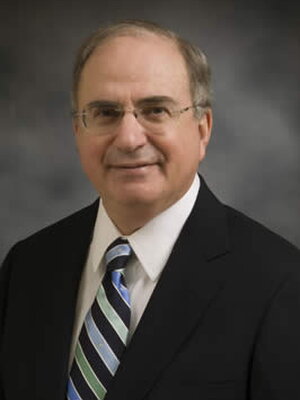
How/why did you choose Psychology as a major? Majoring in psychology was not on my radar when I enrolled at the University of Illinois at Urbana-Champaign. I started as a pre-med major. The program required an elective for my first semester. Not knowing what to take as an elective, I asked a sophomore in pre-med. He said, "whatever you do, don't take Psychology. I took it, it was terrible, and I got a "C" in it." Because I really didn't think much of this person, I knew that Psychology was definitely the class to take. The class was great and the faculty member, Dr. Morton W. Weir (who later became Chancellor of the campus), was fantastic. The class met at 8:00am MWF in Gregory Hall. But Dr. Weir kept us awake at this early hour with his humor, and I learned how diverse the field of Psychology is, like say, learning about rods and cones in vision. I continued taking Psychology classes as electives and enjoyed these classes far greater than my pre-med classes and later changed my major to Psychology.
What specific skills did you develop by taking Psychology courses?
I learned to think critically. For example, when an advertisement stated 20% fewer cavities with Crest, I sent for the study and learned that the study was not, say, Crest against Colgate but Crest with fluoride against Crest without fluoride.
Outside the classroom, what opportunities/experiences were most beneficial?
This experience was actually course related. For a course in Research Methods in Social Psychology, a team of five of us designed and implemented a study on the effect of communication on cooperation in game behavior. It was fascinating to work on this project and I learned that I enjoyed teamwork and research activities. I also had the opportunity of working on an independent study project with Dr. Nancy Hirschberg on a study of personality differences in judging the traits of people. That was an amazing experience. Finally, I was active in Psi Chi.
Did you believe that you “had to” obtain more schooling after your bachelor’s degree?
I believed that it was imperative to obtain a Ph.D. in order to enhance my job and career opportunities.
In retrospect, what would you have done differently as an undergraduate?
Easier said than done, but my grades were best when studying for classes was my number one priority. During semesters when I was involved more with social activities, such as pledging a social fraternity, my grades suffered due to less time available for class work and studying. I also learned that when I skipped classes, I dug myself into a hole that was difficult to get out of. Finally, I was a procrastinator. During one semester, I had a major paper due at the end of the semester. The residence hall closed down for the year, and I had to move into a hotel and work all through the night to complete it. I brought it over to my instructor's home. I was lucky to get a "B".
If you continued more schooling after your bachelor’s degree, share your reasons.
As I wrote above, I believed that it was imperative to obtain a Ph.D. in order to enhance my job and career opportunities. .
Describe how you utilize your undergraduate Psychology skills in your current job/career.
My first real job was before I completed my Ph.D. requirements. While I was working on my M.A. in Psychology at Loyola University Chicago, I had the opportunity of being a Summer Associate (essentially, a paid internship) for three months at Science Research Associates, Inc. (SRA) in Chicago. SRA was an educational and test publisher and was a wholly-owned subsidiary of the IBM Corporation. That was a great experience learning about test development and validation. Three years later, as an "all-but-dissertation" and looking for work, I called one of my contacts at SRA to see if they had any openings. They had an opening for Assistant Project Director in the Personnel Test Department. My contact vouched strongly for me and I got the job. Contacts really help in getting a job! I worked for SRA for eleven years. I finally finished my Ph.D. dissertation while working at SRA, then moved on to work for a management consulting firm in Los Angeles, as director of its test publications division, and later moved to Minneapolis as Vice President & General Manager of the test development and test scoring division of National Computer Systems, Inc. (NCS). After fifteen years in the corporate world, I changed to academia, to teach in the College of Business and Management at Northeastern Illinois University in Chicago.
What pearls of wisdom can you offer to current undergraduate students?
Get to know your faculty members. Visit them during office hours. I am sure that you have heard this before. But, as a faculty member, I can tell you that very few students show up during office hours. I can write a much stronger letter of recommendation for a student if that student earned an "A" in my class and I got to know that student outside of class. I probably would not have gotten into an excellent graduate school program had not several of my professors at Illinois strongly believed in me and advocated for me. Sit in the front row or two in class; I find that the better students tend to sit near the front, and it is easier to learn their names. Also, though you want to have some fun and you may need to work a job, remember that University work is number one.